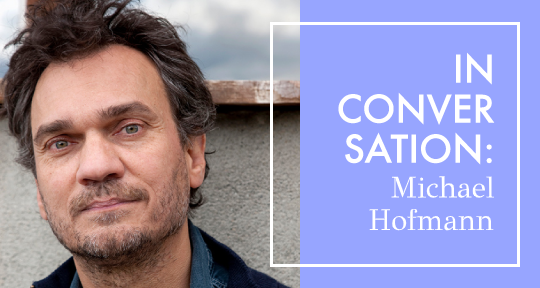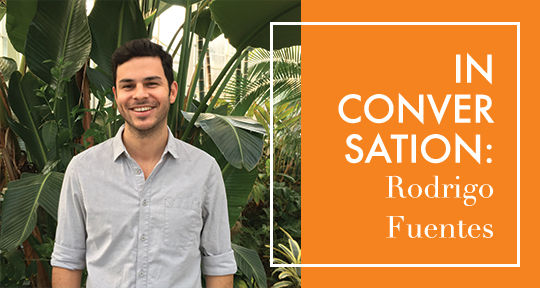In a tumultuous January, Asymptote Book Club sent to subscribers a remarkable novel that is as compelling as it is disorienting: The Sweet Indifference of the World, written by esteemed Swiss author Peter Stamm and translated by Michael Hofmann, an accomplished poet with the penchant for “avoiding the obvious.” Instilled, as the best fictions are, with the tantalizingly elusive and the startlingly clear, the prose takes unorthodox turns to investigate a love lost and a life lived. Though we now have tools to navigate nearly every physical terrain, literature is still our main method for traversing the topography of psychological human experience. To grant us an insight on this unique work, Michael Hofmann talks with assistant editor Lindsay Semel about failures, freedoms, and the the survival of simplicity through translation.
The Asymptote Book Club is our gift to readers in the US, the UK, and the EU. Bringing the most notable titles in translated literature for as little as USD15 per book, you can sign up to receive next month’s selection on our website; once you’re a member, you can join the online discussion on our Facebook page.
Lindsay Semel (LS): So far, you are Peter Stamm’s only voice in English, and you’ve ironically referred to him as your “living author.” How does his writing converse with some of the other work you’ve translated? Do you find any interesting points of contact, clash, or cohesion?
Michael Hofmann (MH): Peter’s writing is so pure and clean. There’s nowhere to hide in it. Most of the things I’m associated with (or that I write myself) are much murkier and endlessly more elaborate. In some ways, we’re not a natural pairing at all. For someone like me who spends much of his time shuffling subordinate clauses or thinking of the ideal way to modify adverbs (with another adverb), it’s a purge and a cure. The contact, I suppose, is that to some extent he comes out of the Anglo-Saxon tradition (Hemingway, Carver, etc. etc.—though he has many more writers behind him), and I’m trying to return him to it in the most graceful and fitting way I can. In a way, it doesn’t feel like translating at all—it’s more like making a forgery. Trying to pass off something English-inspired as English!



